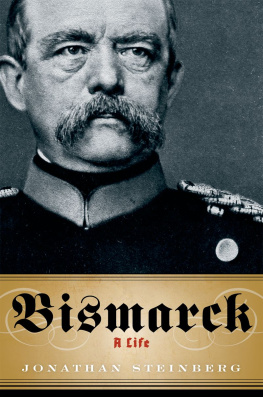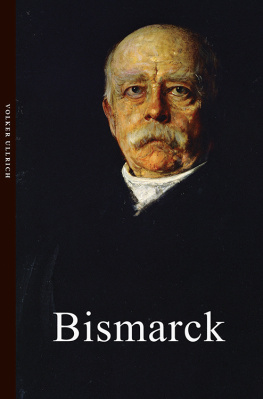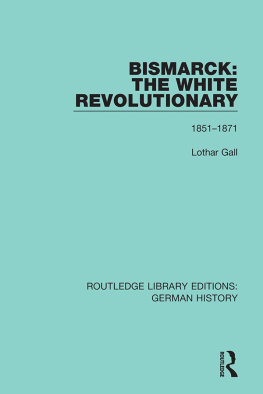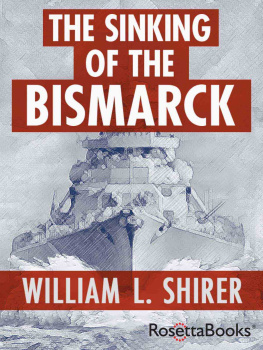BISMARCK
A LIFE
JONATHAN STEINBERG


Oxford University Press, Inc., publishes works that further
Oxford Universitys objective of excellence
in research, scholarship, and education.
Oxford New York
Auckland Cape Town Dar es Salaam Hong Kong Karachi
Kuala Lumpur Madrid Melbourne Mexico City Nairobi
New Delhi Shanghai Taipei Toronto
With offices in
Argentina Austria Brazil Chile Czech Republic France Greece
Guatemala Hungary Italy Japan Poland Portugal Singapore
South Korea Switzerland Thailand Turkey Ukraine Vietnam
Copyright 2011 by Jonathan Steinberg
Published by Oxford University Press, Inc.
198 Madison Avenue, New York, New York 10016
www.oup.com
Oxford is a registered trademark of Oxford University Press
All rights reserved. No part of this publication may be reproduced,
stored in a retrieval system, or transmitted, in any form or by any means,
electronic, mechanical, photocopying, recording, or otherwise,
without the prior permission of Oxford University Press.
Library of Congress Cataloging-in-Publication Data
Steinberg, Jonathan.
Bismarck: a life / Jonathan Steinberg.
p. cm.
Includes bibliographical references and index.
ISBN 978-0-19-978252-9 (alk. paper)
1. Bismarck, Otto, Frst von, 1815-1898. 2. StatesmenGermanyBiography.
3. GermanyPolitics and government18711888. I. Title.
DD218.S795 2011
943.083092dc22
[B]
2010045387
1 3 5 7 9 8 6 4 2
Printed in the United States of America
on acid-free paper
To my partner, Marion Kant
Contents
Preface
In a preface authors thank those who helped them. In the internet age he or she will certainly not know some of the most important of them: the anonymous librarians, archivists, scholars, researchers, and technicians who put precious resources on line, digitalize catalogues, contribute to online encyclopedia and great reference books such the Oxford Dictionary of National Biography or the Neue deutsche Biographie. How can I thank personally the archivists at the New York Times who provided online the report in its original typeface of the wedding in Vienna on 21 June, 1892 of Herbert Bismarck and Countess Marguerite Hoyos? No Bismarck biographer before me has enjoyed such a wealth of unexpected, unusual and fascinating new material. Whatever the weaknesses of this work, the author had access to more remote and essential material than any predecessor, no matter how diligent, could have exploited.
I know the names of others without whom I could not have written this biography. Tony Morris, publisher and friend, asked me to write a life of Bismarck, and Andrew Wheatcroft, publisher, historian, and friend, saved the project when the first publisher abandoned it. Through Andrew Wheatcroft I gained the help of the perfect literary agent, Andrew Kidd of Aitken Alexander, who guided it safely to Oxford University Press where Timothy Bent steered it through its rough early stage and encouraged me to cut it to a less unwieldy size. His skill and editorial expertise helped me polish and polish again the slimmed down manuscript.
My friend and colleague, Chris Clark, author of Iron Kingdom: The Rise and Downfall of Prussia, 16001947, read the first draft, all 800 pages, with a care and attention to errors and misinterpretations that only he could have given. Karina Urbach, author of Bismarcks Favourite Englishman: Lord Odo Russells Mission to Berlin, gave me the benefit of her great knowledge of the period and of German society. Rabbi Herb Rosenblum of Philadelphia passed on to me the astonishing fact that in 1866 Bismarck had attended the dedication of the Oranienburg Street Synagogue in Berlin.
An author fortunate enough to be published by Oxford University Press gets two publishers for the price of one. Timothy Bent and his colleagues at 198 Madison Avenue welcomed me with every kind of assistance and support. Luciana OFlaherty, Publisher, Trade Books, and her colleagues at Oxford University Press, Great Clarendon Street, Phil Henderson, Coleen Hatrick, and Matthew Cotton have been an authors dream team. Deborah Protheroe found illustrations that I had missed and put up with my foibles about the pictures. Edwin Pritchard copy-edited the text with skill and tolerance of the authors irregular habits. Claire Thompson, Senior Production Editor, guided me through the final stages of proof-reading and indexing. Joy Mellor proof-read the text.
Nothing in my long professional career has been as much fun as the composition of this work. I got to know the most remarkable and complex political leader of the nineteenth century and had (and still have) the illusion that I understand him. I met and read the letters and diaries of the greatest figures in Prussian society. That imagined society took me away from, and made me a nuisance to, my family, but all of them supported the enterprise in every way and gave me their love and good cheer, which kept my spirits up. Without my partner, Marion Kant, I could never have written the book and I have dedicated it to her.
Philadelphia, PA
October 2010
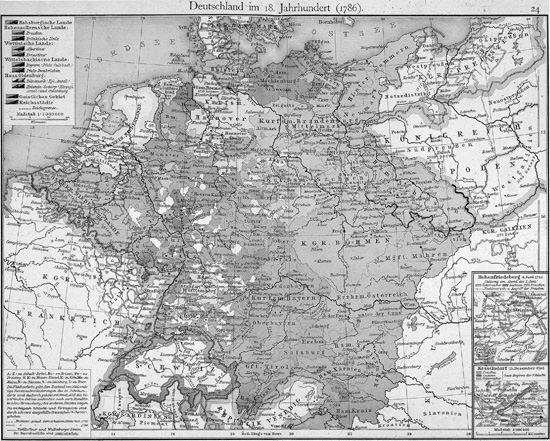
Map 1 Map of Germany showing the political boundaries in 1786.

Map 2
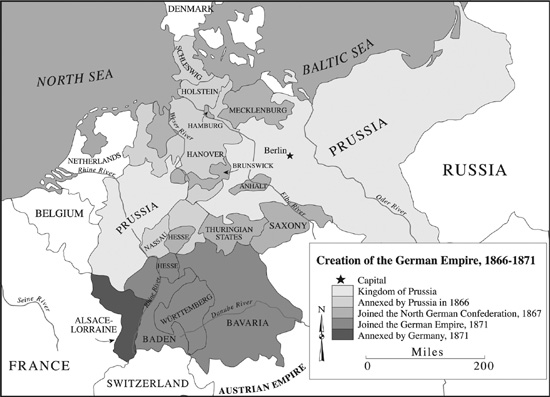
Map 3
1
Introduction: Bismarcks Sovereign Self
Otto von Bismarck made Germany but never ruled it. He served under three royal masters, any one of whom could have dismissed him at any moment. In March of 1890 one did. His public speeches lacked all the characteristics that we would normally call charismatic. In September of 1878, at the height of his power and fame, the newspaper Schwbische Merkur described one of Bismarcks speeches in the Reichstag:
How astonished are those who hear him for the first time. Instead of a powerful, sonorous voice, instead of the expected pathos, instead of a fiery tirade glowing with classical eloquence, the speech flows easily and softly in conversational tones across his lips, hesitates for a while and winds its way until he finds the right word or phrase, until precisely the right expression emerges. One almost feels at the beginning that the speaker suffers from embarrassment. His upper body moves from side to side, he pulls his handkerchief from his back pocket, wipes his brow, puts it back in the pocket and pulls it out again.
Bismarck never addressed a mass meeting and only attracted crowds after he fell from power, by which time he had become legendary.
From September 1862 to March 1890 Bismarck ruled in Germany but only as a parliamentary minister. He made speeches of the above kind in various parliamentary bodies from 1847 to his dismissal in 1890. He exerted his personal aura over his audiences but never led a political party in the British sense at all. Throughout his career, the German Conservatives, the National Liberals, and the Catholic Centre Party, the largest German parties, distrusted him and kept their distance. The Bismarckian party, the so-called Free Conservatives, had influential members but no great following outside the chambers. Much of Bismarcks time and energy went into the nuts-and-bolts of government administration. He dealt with everything from international treaties to whether stamp duty belonged on postal money orders, an issueoddly enoughwhich led to one of his many, many resignations.

